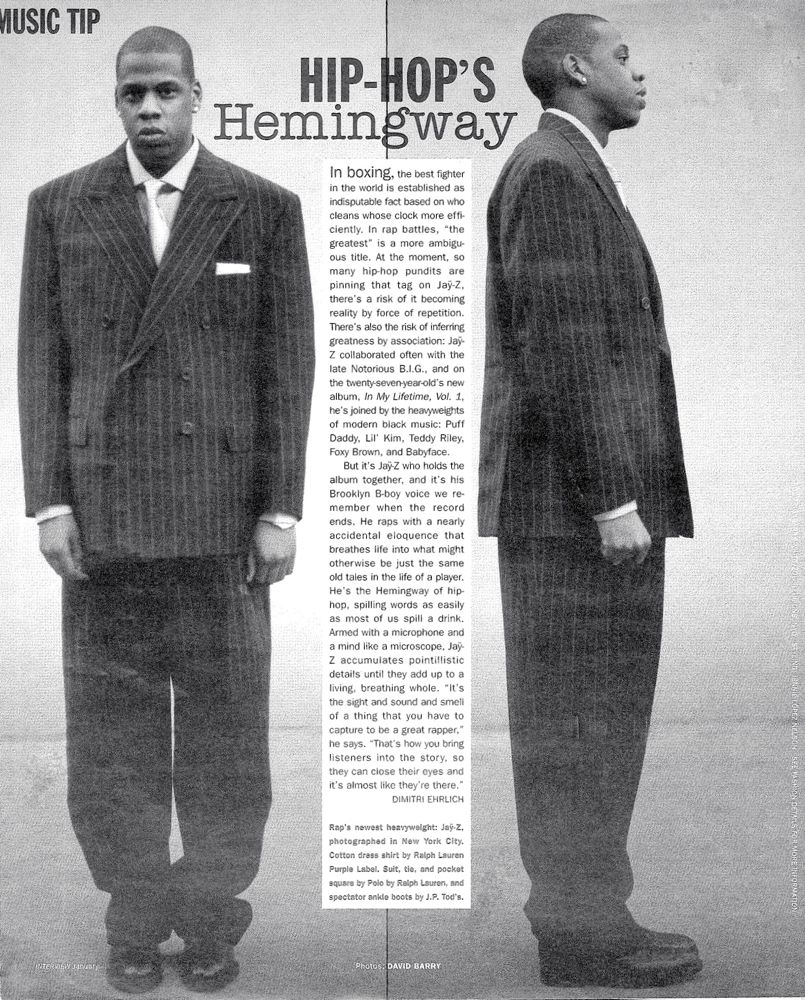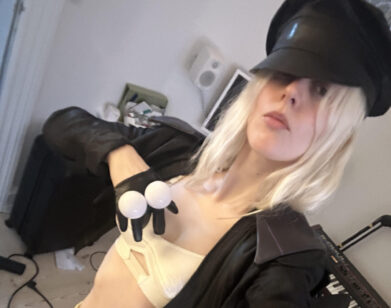New Again: Jay-Z

Friday marked the long anticipated release of Jay-Z‘s 14th studio album, 4:44, after a four-year hiatus since his last record Magna Carta Holy Grail. In 4:44, which consists of 11 tracks, the prominent rap artist deals with wide-ranging issues of familial trust, loyalty in friendship, integrity in art, and politics around black identity and wellbeing.
Although Jay-Z is known not to skirt around difficult topics, often imbedding them between rather audacious verses about his own fame and fortune, here he sounds especially unguarded and even vulnerable. Giving a public apology to his wife Beyoncé Knowles, engaging in conversation about social stigma with his mother Gloria Carter, and bemoaning a breach in friendship with Kanye West, Jay-Z reveals a mature and self-aware side. He turns to trustworthy sources of wisdom and hope for samples, such as Stevie Wonder’s “Love’s in Need of Love Today” or Donny Hathaway’s “Someday We’ll All Be Free.”
We take our own step back in time and revisit a review of Jay-Z’s 1998 record In My Lifetime, Vol.1 from our January issue of that same year.—Zuzanna Czemier
Hip-Hop’s Hemingway
by Dimitri Ehrlich
In boxing, the best fighter in the world is established as indisputable fact based on who cleans whose clock more efficiently. In rap battles, “the greatest” is a more ambiguous title. At the moment, so many hip-hop pundits are pinning that tag on Jay-Z, there’s a risk of it becoming reality by force of repetition. There’s also the risk of inferring greatness by association: Jay-Z collaborated often the the late Notorious B.I.G., and on the 27-year-old’s new album, In My Lifetime, Vol.1, he’s joined by the heavyweights of modern black music: Puff Daddy, Lil’ Kim, Teddy Riley, Foxy Brown, and Babyface.
But it’s Jay-Z who holds the album together, and it’s his Brooklyn B-boy voice we remember when the record ends. He raps with a nearly accidental eloquence that breathes life into what might otherwise be just the same old tales in the life of a player. He’s the Hemingway of hip-hop, spilling words as easily as most of us spill a drink. Armed with a microphone and a mind like a microphone, Jay-Z accumulates pointillistic details until they add up to a living, breathing whole. “It’s the sight and sounds and smell of a thing that you have to capture to be a great rapper,” he says. “That’s how you bring listeners into the story, so they can close their eyes and it’s almost like they’re there.”






